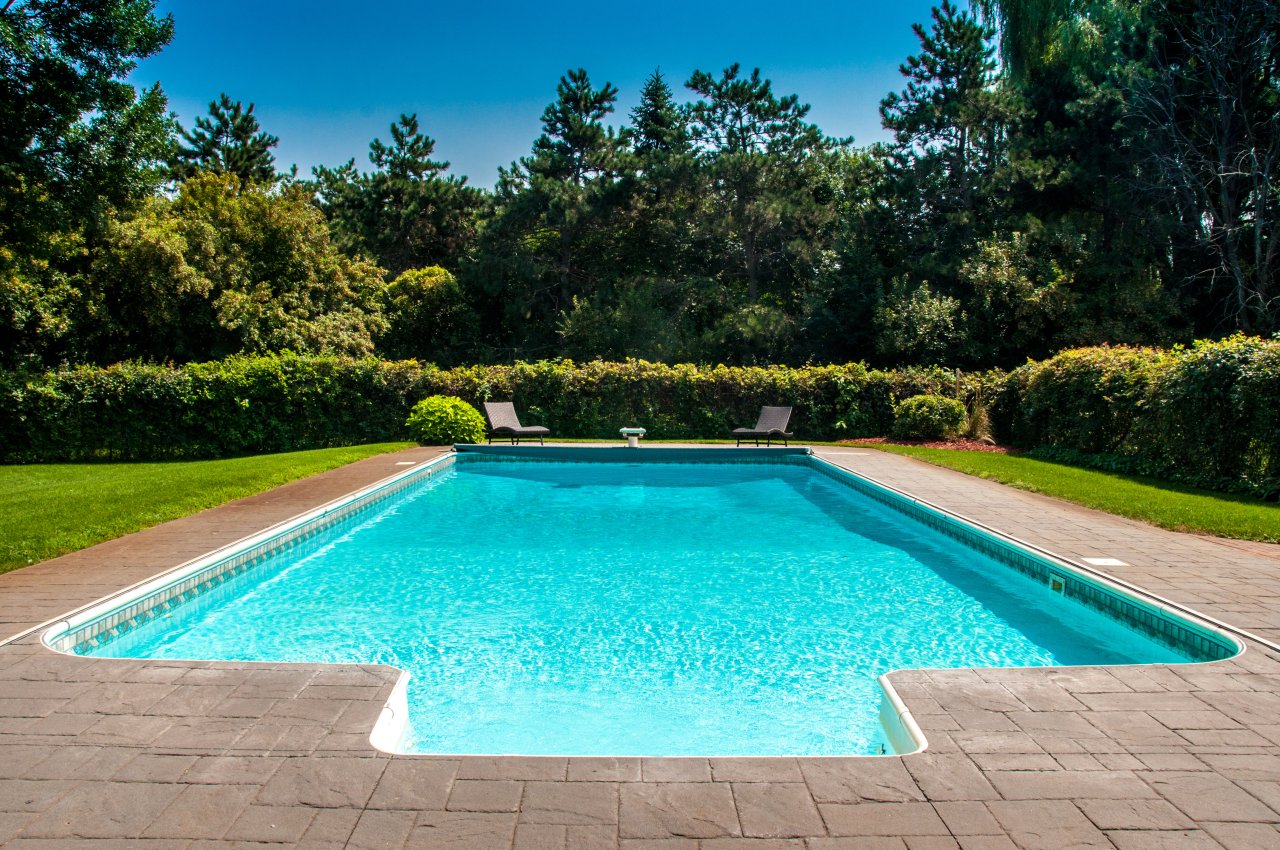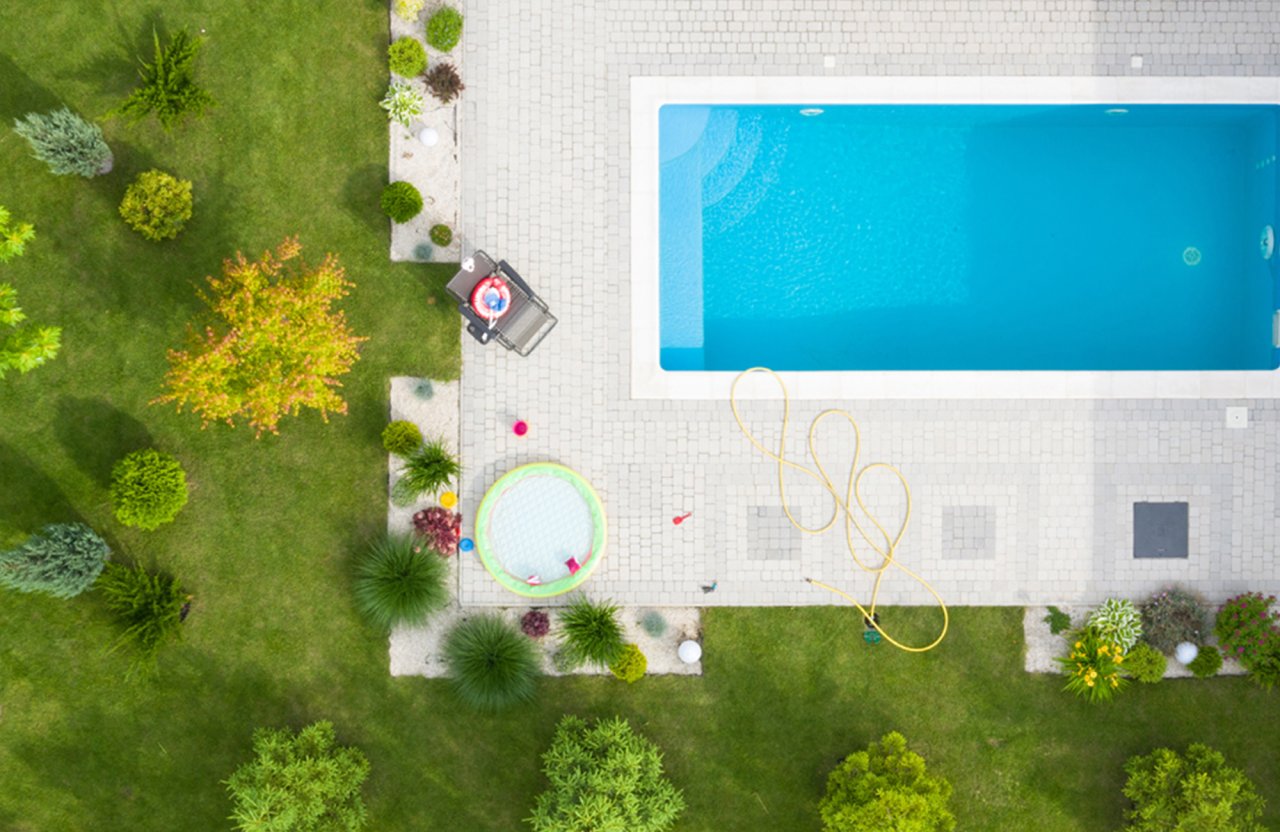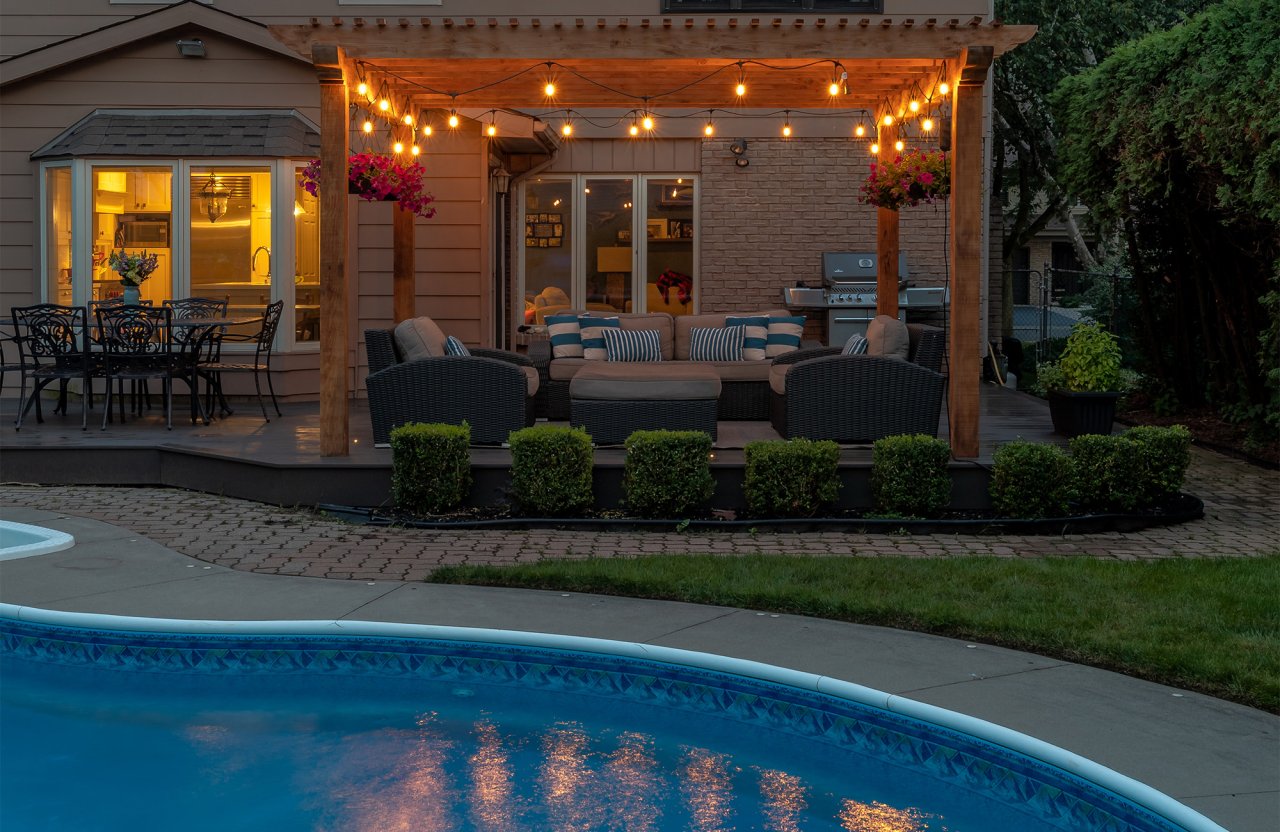The Unique Blog
Concrete, Vinyl or Fiberglass… Which is Right For Your Pool?

A pool provides a fun and relaxing space for family gatherings, barbecues, and summertime parties. And when properly planned, they can provide you with a resort-like experience — without the cost and hassle of having to travel.
Deciding to add a pool to your yard is easy. Deciding what kind of pool to install, what materials you want it made from and who to trust with such a big investment isn’t easy at all. In fact, you might even put off installing your pool for years because you’re afraid to make the wrong decision or just don’t know where to start.
We’ve put together this short guide to inspire you and help make your decision easier, so your family can splash, laugh and create lasting memories out by the pool.
Consider your needs
Installing a pool in your backyard is an investment that will completely transform your yard, so take the time to consider how your family plans to use the pool, both now and in the future. Try and dig deep. Once you know why you want a pool, it’ll be easier to decide what kind to get.
To help with this, think about your favourite poolside memories. Was it lounging around the pool at a vacation resort? Watching the kids play in the pool? The great pool parties your friend/sister/neighbour throws every summer? Whatever it is, make sure the pool you choose supports the vision you have for your yard.

Concrete (gunite) pools: Beautiful and durable
Pros:
Built to last — Concrete pools are known for their durability and are built to withstand harsh weather conditions and heavy use.
Customizable — Because they are built on-site, there are no limits to the size, shape or depth of concrete pools, so you can create a unique and personalized pool design that celebrates your passion, your hobby, your favourite animal or anything else you can imagine.
Good return on investment — A concrete pool can add 5-8% to the value of your home, making it an investment that holds its value over time. By contrast, an above ground pool can actually decrease your home’s value.
Cons:
Cost — concrete pools are typically more expensive to build than other types of pools, such as vinyl or fiberglass, due to the labour and materials required for construction.
Maintenance — in addition to regular cleaning, concrete pools occasionally need to be resurfaced every 8-10 years to keep them in good condition.
Rough Surface — Concrete pools can have a rough surface texture, which many swimmers find uncomfortable. This can be mitigated by applying a finish to the concrete, most commonly plaster, tile or some type of aggregate.
Cracking — concrete pools are susceptible to cracking over time, especially if the ground beneath the pool shifts or settles. To keep cracks to a minimum make sure the area where the pool will be located has adequate drainage.
Lengthy installation — A concrete pool can take 3-6 months to complete, so you likely won’t be able to use your yard for most of the summer.
Vinyl pools: Smooth and versatile
Pros:
Inexpensive — Vinyl pools are typically less expensive to build than other types of pools, such as concrete or fiberglass, due to the lower cost of materials and labour.
Comfortable — Because vinyl pools have a smooth surface they are gentler on skin and feet than pools made from concrete.
Low-maintenance — Vinyl pools require less maintenance than other types of pools, as they are less susceptible to staining or damage. While they don’t need to be painted or resurfaced, the vinyl lining will need to be replaced every 8-15 years.
Customizable — Vinyl pools are available in a variety of shapes, sizes, and colours. While custom designing your vinyl pool is possible, it's more cost-effective to stick to the design options that are available.
Quick installation — when you choose a vinyl pool, you could be swimming in a few weeks.
Cons:
Susceptible to damage — Vinyl pool liners are susceptible to damage from sharp objects and UV rays, which can cause fading, discoloration, or tearing.
Lower resale value — Vinyl pools may not increase the resale value of your property as much as concrete.
Algae — Without proper care, vinyl pools can be susceptible to algae growth.
Fiberglass: Quick & easy
Pros:
Low Maintenance — Fiberglass pools require less maintenance than other types of pools, as they do not require resurfacing, painting, or liner replacement.
Quick Installation — Because they’re built off-site, fiberglass pools can be installed relatively quickly, usually in a matter of weeks.
Energy Efficient — Since fiberglass is an insulator, fiberglass pools use less energy to maintain a comfortable temperature than pools made from other materials.
Cons:
Limited Design Options — While some companies will build custom fiberglass pools on-site, most are built off-site and come in a limited range of shapes and sizes.
Yard access — Since fiberglass pools are typically delivered in one piece, certain locations or situations can make transportation and installation challenging.
Susceptibility to Damage — Fiberglass is fairly durable, but it can crack or become damaged by heavy objects or ground movement. It is possible to repair cracks by purchasing a kit specifically for repairing fiberglass pools.
Choose a reputable contractor
Hiring someone to put a pool in your yard is a major investment, so before you decide who to go with, do your research.
Check online reviews
Ask for referrals from family and friends
Make sure the contractor is licensed and insured
Ask to see examples of their work (either in person or by seeing a portfolio of past work)

Final considerations
Choosing the type of pool you want in your yard is just one of many decisions you need to make before installation begins. You also need to:
Determine if permits are necessary and whether your pool complies with local regulations and zoning laws. Failure to do so can result in fines, legal issues, or even having to remove the pool. Your pool contractor can help with this.
Set a budget for your pool project and make sure to include all associated costs, such as excavation, coping, decking and landscaping. Get a detailed quote from your pool contractor and make sure you understand all the costs involved.
Consider the design options available and choose a pool that complements your home and suits your specific needs and preferences. Think about any additional features you’d like to add, such as a spa or waterfall.
Understand the maintenance requirements of your new pool, including the chemicals and equipment needed to keep the water clean and balanced.
Include the wiring needed to add landscape lighting if you intend to use your pool after hours.
Designing your pool should be fun and exciting. There is no wrong answer, since the choice of materials comes down to your budget and personal preferences. At Unique Landscape Services, our designers work with you to ensure your pool is everything you hoped it would be.
Ready to take the plunge? Contact us if you’d like some more information on the types of pools available or would like to schedule an appointment to get started.